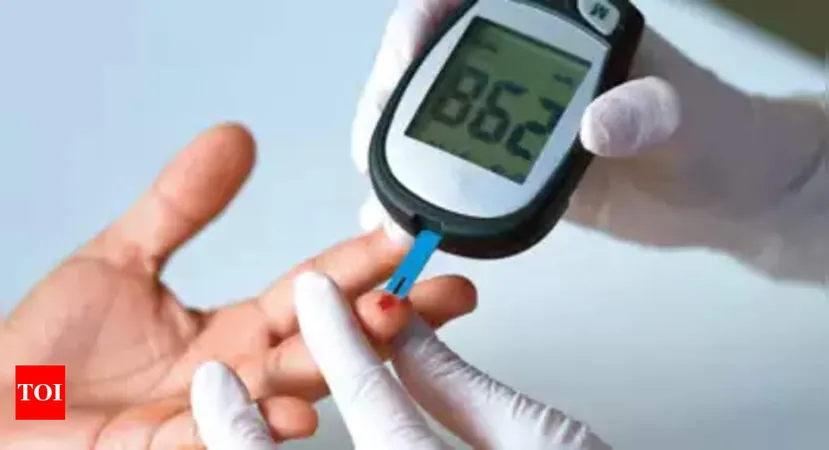
Game-Changer: Home Blood Glucose Test Could Revolutionize Gestational Diabetes Detection!
2024-12-13
Author: Siti
A groundbreaking study has unveiled that a simple two-hour post-meal blood glucose test at home can effectively predict the risk of gestational diabetes (GDM) in pregnant women. This affordable and easy-to-use method, highlighted in the journal Cureus by researchers from Lady Hardinge Medical College in New Delhi, paves the way for early interventions that could significantly reduce health complications for both mothers and their babies.
High levels of postprandial blood glucose (PPBG) have been strongly linked to various adverse outcomes, such as increased birth weight, preterm deliveries, and severe postpartum complications. Women suffering from gestational diabetes are at elevated risk for issues including pregnancy loss, fetal death, and prolonged labor, which may necessitate cesarean sections. Moreover, their newborns may encounter respiratory difficulties and long-term metabolic disorders.
Dr. Pikee Saxena, the principal investigator of the study, emphasized the importance of early screening. "By identifying at-risk mothers early on, we can implement dietary changes and exercise programs tailored to their needs, which helps mitigate the risks associated with these conditions," she stated. This proactive approach not only protects the health of the mother but also safeguards the future well-being of the child by potentially preventing obesity and other metabolic diseases later in life.
In environments with limited healthcare resources, the PPBG screening proves to be more effective than the traditional HbA1c test, which examines average blood sugar over several months. It allows for easy monitoring with personal glucose meters, and cases identified through these screenings can be managed with lifestyle modifications.
With India facing an alarming increase in diabetes, researchers are advocating for the implementation of guidelines that screen all pregnant women for diabetes at their first medical visit. According to national recommendations from the Ministry of Health and Family Welfare, this approach aims to reduce the rising prevalence of gestational diabetes within the population.
The study involved a prospective cohort of 200 women between eight and ten weeks of gestation, followed from February 2022 until February 2024. It revealed staggering findings: 95.9% of women with a PPBG exceeding 110 mg/dL went on to develop gestational diabetes, in stark contrast to only 4% of those with PPBG levels below that threshold. Furthermore, those with PPBG above 110 mg/dL showed significantly higher body mass index (BMI) and incidence of preterm births.
Misconceptions surrounding gestational diabetes persist, particularly the belief that a larger baby equates to better health. In reality, elevated maternal blood sugar can lead to excess insulin production in the fetus, resulting in unhealthy fat accumulation and larger-than-average birth weights.
This study holds significant promise for transforming how gestational diabetes is identified and managed, potentially leading to healthier pregnancies and improved outcomes for mothers and infants alike. The implications of utilizing home blood glucose testing could usher in a new era of preventative healthcare in the realm of obstetrics.
Stay informed about critical health developments and breakthroughs—this research could impact millions!



 Brasil (PT)
Brasil (PT)
 Canada (EN)
Canada (EN)
 Chile (ES)
Chile (ES)
 España (ES)
España (ES)
 France (FR)
France (FR)
 Hong Kong (EN)
Hong Kong (EN)
 Italia (IT)
Italia (IT)
 日本 (JA)
日本 (JA)
 Magyarország (HU)
Magyarország (HU)
 Norge (NO)
Norge (NO)
 Polska (PL)
Polska (PL)
 Schweiz (DE)
Schweiz (DE)
 Singapore (EN)
Singapore (EN)
 Sverige (SV)
Sverige (SV)
 Suomi (FI)
Suomi (FI)
 Türkiye (TR)
Türkiye (TR)